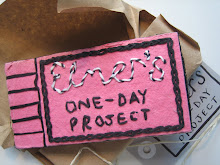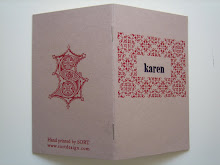- ACCORDION - CONCERTINA - ACCORDION - CONCERTINA -
- CONCERTINA - ACCORDION - CONCERTINA - ACCORDION -
- ACCORDION - CONCERTINA - ACCORDION - CONCERTINA -
- CONCERTINA - ACCORDION - CONCERTINA - ACCORDION -
-ACCORDION - CONCERTINA - ACCORDION - CONCERTINA -
- CONCERTINA - ACCORDION - CONCERTINA - ACCORDION -
- ACCORDION - CONCERTINA - ACCORDION - CONCERTINA -
- CONCERTINA - ACCORDION - CONCERTINA - ACCORDION -
-ACCORDION - CONCERTINA - ACCORDION - CONCERTINA -
- CONCERTINA - ACCORDION - CONCERTINA - ACCORDION -
are these two terms simply interchangeable?
27.2.10
I've been thinking some more about Japanese methods of bookbinding.
The use of Japanese Stab Binding enables the binding to be exposed on the surface of each bookwork. I've noticed that many artists’ books by Japanese artists draw upon craft based methods, specifically working with the concertina form or with binding that is intricate yet visible to the reader.
Often they combine both of these elements to create bound concertinas or accordion bookworks. This is where all the panels of a concertina or an accordion are bound along one side using a hand-stitched method. As a result the bookwork opens like a conventional book, however, the spine is the giveaway, as is each folded edge, clearly showing the signs of a closed and bound concertina - great stuff!
The use of Japanese Stab Binding enables the binding to be exposed on the surface of each bookwork. I've noticed that many artists’ books by Japanese artists draw upon craft based methods, specifically working with the concertina form or with binding that is intricate yet visible to the reader.
Often they combine both of these elements to create bound concertinas or accordion bookworks. This is where all the panels of a concertina or an accordion are bound along one side using a hand-stitched method. As a result the bookwork opens like a conventional book, however, the spine is the giveaway, as is each folded edge, clearly showing the signs of a closed and bound concertina - great stuff!
Subscribe to:
Posts (Atom)





![five [yellow] poems](https://blogger.googleusercontent.com/img/b/R29vZ2xl/AVvXsEj7pWNS6-0OLKnVlSKvxNZqflLcymygEpr7SKNZ6DxOw2ujEBwCNVmJyjSNWrwfRduPucxM75xqy150M74MeXwHdLaK8OEy3vX-qNnWPPAj4JQiJA_hiqwlqGsxHqQ9Lzf4ANVHutXo7jRQ/s220/book2.JPG)














